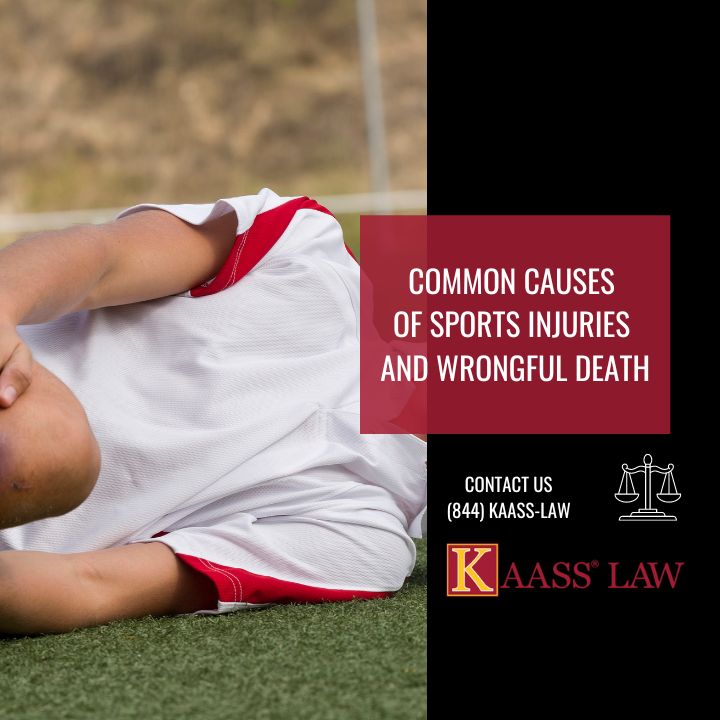Unfortunately, the rise in popularity of action sports like snowboarding and dirt bike racing has been accompanied by increased injuries and fatalities from these activities’ inherent risks.
Extreme sports, therefore, push the limits of the law. Although extreme sports are meant to pose such physical risks, the government is ultimately responsible for determining who is to blame and who is responsible for what. Specifically, typical incidents in extreme sports include:
- Broken joints
- Injuries to the head, legs, spine,
- Lacerations (cuts that occasionally require stitches),
- Concussion-related difficulties,
- Impairments
- Death
What Are The Main Reasons for Sports Injuries?
Because of the negligence of facilities, organizations, or other parties, many avoidable injuries take place. The reasons behind sports traumas might differ from person to person, but our Kaass Law sports injury lawyers have listed the most frequent injuries, which include:
- Faulty or dysfunctional exercise or sporting equipment
- Unsuitable maintained machinery
- Inadequate oversight
- Careless coaching
- Inadequately skilled medical personnel
- Absence of an emergency plan
- Lack of awareness of heat exhaustion
- Hazards on the property
- Failure to provide injured players with the proper medical treatment
- Abuse and violent behavior
What Is The Reason Behind Sports Injuries Leading to Wrongful Death?
If someone gets injured or dies while engaging in extreme sports, a few legal options are available, mostly when a company or group is the event’s sponsor.
Negligence:
Negligence is the failure of the typical citizen to exercise reasonable caution under similar circumstances. A claim of incompetence regarding extreme sports will indeed be reflected in the course, encouraging too many participants or neglecting to adequately inform the participants of what they are joining.
Assumption of Risk
This form of mitigation, also known as risk assumption, is the primary defense against any traditional negligence claim. The claimant would argue that despite the participant being aware of the dangers, they were chosen voluntarily.
Insofar as the person has realized or may have understood the implications, or if the organizations operate in a way that goes beyond negligence, the courts will be required to analyze the nuances of this theory. However, the risk factor does not apply if one of these scenarios is plausible.
Gross Negligence and Recklessness
The definitions of recklessness and gross negligence are different in each state. Numerous of them are incapable of telling the contrast between the two. So, the defendant knew or ought to have known about the harm but overlooked it and kept acting unsafely, regardless of how the State established the cause of the behavior.
Cardiovascular Diseases
The patient’s age is a significant factor in cardiovascular problems that cause the untimely unexpected death of highly trained sportsmen. Idiopathic cardiovascular disease is the primary cause of unintentional mortality in young athletes who compete. Generally, the most frequent cause of such deaths, accounting for about half of the early mortality of young sportsmen, is hypertrophic cardiomyopathy.
Duty of Care in Sports Injuries
Venues, organizations, and event organizers must conduct sports activities fairly and safely. It’s possible that a dangerous condition existed before the event or that someone other than the group that required the waiver was to blame. For instance, if faulty equipment resulted in a sporting injury, the goods seller or maker may be responsible for compensating the victim.
Contact California Wrongful Death Attorneys Today!
Sports facilities, organizations, and coaches can be responsible for wrongful death if they don’t maintain a safe atmosphere or give the injured person access to proper and prompt medical care. Speak with our wrongful death lawyers from Kaass Law to identify who is legally responsible for the death of your loved one. To schedule an initial consultation, contact our offices at (310) 943-1171.
Take a guide through this link to view our other practices.

